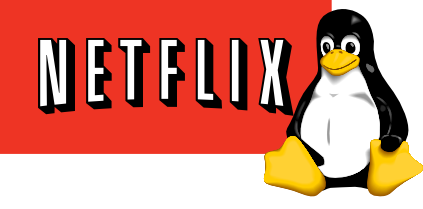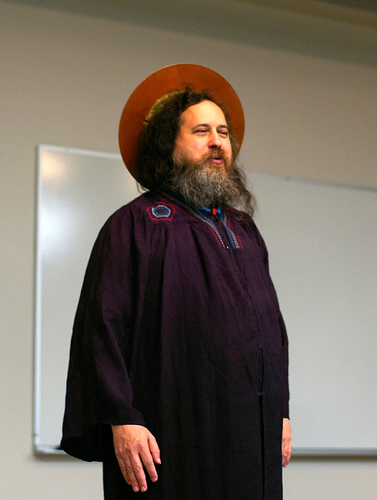It’s become the in-vogue thing for experts on various issues to pontificate on events for the coming year. As I’m now a Dr. and I received my doctorate for studying the socio-technical aspects of software engineering communities, I feel like I’m legitimately qualified to put forth predictions about Open Source, Free Software, and web technologies. Putting a prediction in this list does not necessarily mean that I want it to happen, merely that I think there is a significant chance it will happen. I’m not an insider on any of these issues, but here’s what I think will happen in 2010, in rough order of likelihood:
-
The Eclipse Foundation will undergo a major upheaval related to community/corporate structure and governance.This follows from some of the results of my Ph.D. research and also from more recent posts from Bjorn Freeman-Benson. Much of this will arise from the structure of Eclipse as a 503c6 trade association and the lack of individual participation relative to commercial control of development.
-
Highly customized hardware running on Open Source will continue to under-perform. In particular, OLPC will continue to be a yawn with most people questioning the long term value of the project over basic needs, resulting in no new deployments of more than 150,000 units and Litl will be too different for most people to understand and will fold.
-
Despite the pleas of Open Source users and zealots, Netflix will continue to be inaccessible from open platforms. This isn’t a Netflix issue, it’s related to the content providers who want their content to be protected. Until Open Source can provide a suitable way to protect this content it will continue to lag behind. Therefore, for the most part, Netflix will continue to require Silverlight for streaming.
As Netflix becomes more dominant in the streaming market this may lead to some firms claiming that Netflix is abusing it’s power as a market leader by not providing open access to their streams. These people will have a fundamental misunderstanding of both the cause for Netflix requiring Silverlight and the duties of a market leader in an unregulated market.

While this would be awesome, it ain't gonna happen.
-
The Boxee Box will be greeted with lots of nerd hype, but will ultimately lose out to more flexible HTPC solutions based on Intel’s Pinetrail and nVidia’s Ion 2.This is largely related to the previous two predictions, but addresses broader issues of media convergence. I’m excited about the Boxee Box, but I’ve seen too many great devices fail because of various problems. Without a huge marketing blitz and without the ability to work as a Windows Media Center extender or record live TV, the beautiful Boxee Box will underperform as nerds op for a faster, more open platform.
-
Google will suffer a major privacy leak and be very very quiet about the issue. Some will say this will hurt Google, but in the long run nothing will change. Google is too careful and conscientious about it’s position to allow this to happen to GMail. It’s much more likely that this will occur in a smaller service such as Google Voice or Picasa.
-
Tensions between Open Source developers and the Free Software Foundation will continue to grow, resulting in at least one major community issuing a formal statement about community and inclusiveness that puts it directly at odds with the Free Software Foundation. We’ve seen some signs of these issues, particularly in the GNOME community, which expressed outrage over Richard Stallman’s actions at the Gran Canaria Desktop Summit and also in a series of messages on various GNOME mailing lists in December. I’m not certain if it will be GNOME, but they are the community I’ve followed most closely on these issues.

St. Ignucious - Harbinger of Doom? http://www.flickr.com/photos/michaelmccracken/406122624/ (Photo from Michael McCracken)
-
GNOME will encounter difficulties related to the foundation’s reliance on corporate sponsors and the rise of alternative platforms. GNOME was making excellent progress in the mobile space, especially with the maemo platform. Unfortunately, Android may be a force too powerful for GNOME to compete against. Some of this loss will be offset by the increasing interest in netbooks and cloud based services, however such gains will be short lived as Android moves into netbooks and Google releases Chrome OS.
-
Ubuntu will remove at least one major application in favor of directing users toward a cloud based solution. I have no idea what application this might be. For end users I could easily see them removing Evolution, however it is too entrenched in the desktop at the enterprise level. My best bet is that the dumping of GIMP for F-Spot will go poorly and Ubuntu 10.10 will direct users to an online application for photo editing and management.
-
The issue of ownership rights of open source software that originated with one author, and was later updated by another who progressively removed all of the original author’s code will come to the forefront resulting in threats of, but no actual, legal challenges.We’ve seen the beginnings of this with Bruce Perens and Rob Landley spatting over BusyBox. I’d imagine that the future challenge will come as the result of a commercial firm using an Open Source project as scaffolding to build a new project, eventually removing all the original Open Source software and then changing the license to something decidedly less open.
-
Commercial ventures will continue to shy away from the GPL in favor of more standard Apache or BSD licenses. At least one major project/community will begin the process of transitioning to more business friendly licensing. We’ve seen how more open solutions (I consider the BSD to be more free than GPL) have been gaining traction, especially in the web frameworks market. It’s only a matter of time until a community begins to recommend that all projects adopt something like the BSD. Despite this success, trolls will continue to insist that BSD is dying.
I’ll revisit these predictions as we turn the calendar to 2011. Given the probability estimates in my head I’d say that five of these will come true with my 95% confidence interval between 2 and 7. However, this is my first attempt at prognostication, so go easy on me in December 2010 when I review these, okay?